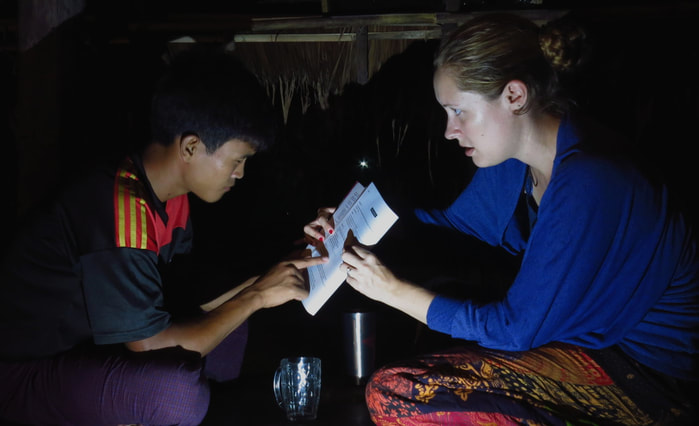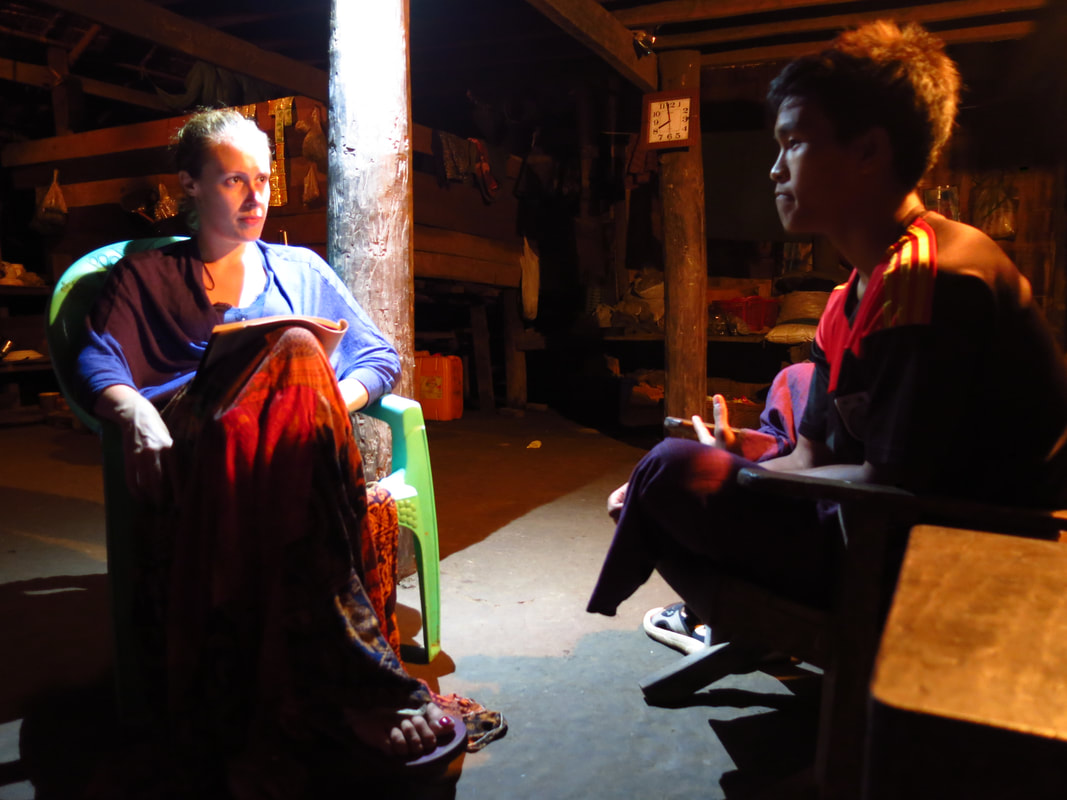|
From my previous experience in Greece, 4 hours each week for 3 months was spent solely with a class of 6 students on oral preparation for one Cambridge exam. It’s serious business. One of the challenges with the speaking portion of the IELTS (International English Language Testing System) test is that the examiner is a real-life person and as such comes with their own set of idiosyncrasies. They could be in a good or bad mood; they could be friendly or brusk. With only 11 minutes per candidate, there isn't much time for small talk, save for the IELTS specified itinerary. Trying to replicate this is difficult. I have spent many hours with our trainee; I have met his family, eaten with them. To be someone new and unknown is a hard concept to follow through. I've tried to act out various personalities he might encounter, oscillating between friendly and harsh. Speaking with one person is not the best way to learn a language, as you pick up on their idiomatic expressions and learn how to predict and listen to correct their errors. Therefore, I also enlisted Van’s help to ask questions while I took a step back, both to assess his English level and to give him a chance to interact with a different accent. Another challenge was him forgetting that I was acting as a stranger, an IELTS examiner. He assumed I knew the background knowledge. Which I do. I know ‘the baby’ or ‘the taxi-boat stop’ as I have visited the village. Each time it was mentioned, I would stop his sentence and ask ‘which baby?' At first he would laugh and reply with a confused expression. However, after a series of stops, he became more well-versed in providing details.
As a teacher, I am used to repetition. I have often had a set of 40 students all come for test preparation one after the other and needed to repeat my questions at what feels like ad infinitum. However, our trainee found the constant introduction very dull. So we recorded our practice sessions and listened back to see how much improvement has happened over an hour. For the third section, I am happy for it to sound something close to a rehearsed narration; there are only so many potential topics and it is important for him to learn what 2 minutes of talking sounds like. It's also vital, in my opinion, that students and teachers comprehend the task and difficulties surrounding it. Both Van and I practise alongside him. We learn that Van speaks concisely without many background details (not great for filling a two-minute time slot) and that I have a tendency to fling my hands around as a filler during thinking time (which makes me look a little unhinged). Although our trainee has never done an exam like this, he is an active, out-going individual. He likes competition and often thrives on challenging himself. Chloe Smith NEH Director of Studies and Teacher Trainer Related Posts: Tackling Different Tests How Bias Can a Test Be? Getting to Grips with the Future
Comments
|
This section will not be visible in live published website. Below are your current settings: Current Number Of Columns are = 3 Expand Posts Area = 1 Gap/Space Between Posts = 20px Blog Post Style = card Use of custom card colors instead of default colors = Blog Post Card Background Color = current color Blog Post Card Shadow Color = current color Blog Post Card Border Color = current color Publish the website and visit your blog page to see the results |
|
© New Education Highway 2024
Except where otherwise noted, content on this site is licensed under a Creative Commons Attribution 4.0 International License. |



